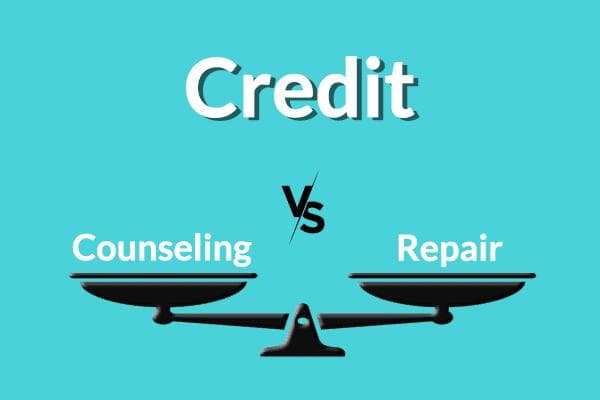
Credit Repair vs. Credit Counseling: Which One Is Right for You?
If you’re struggling with a low credit score, you might have come across two popular options: credit repair and credit counseling. Both can help improve your financial situation, but they work in very different ways. Understanding the differences will help you decide which option suits your needs best.
What Is Credit Repair?
Credit repair refers to the process of identifying and disputing errors on your credit report to improve your credit score. These errors might include incorrect personal information, fraudulent accounts, outdated debts, or inaccurate payment histories. Credit repair can be done on your own (DIY credit repair) or through professional services.
Many people look for free credit repair options online or use credit bureaus’ free dispute tools to correct errors on their reports without paying for third-party help. For those who want a more streamlined DIY approach, software like DisputeTitan.com offers user-friendly credit repair software that guides you through the dispute process step-by-step, making it easier to file disputes and track progress without hiring expensive services.
How Does DIY Credit Repair Work?
With DIY credit repair, you:
- Obtain your credit reports from major bureaus (Equifax, Experian, TransUnion)
- Review the reports carefully for mistakes or inaccuracies
- Use tools like DisputeTitan.com to generate dispute letters and manage the process efficiently
- File disputes with the credit bureaus to have incorrect information removed or corrected
- Follow up regularly to ensure errors are resolved
This approach requires some time and effort but can be effective and cost-free or low-cost, especially when using helpful DIY credit repair software.
What Is Credit Counseling?
Credit counseling is a service provided by certified counselors who help you manage your overall debt and budget. Unlike credit repair, which focuses on fixing your credit report, credit counseling aims to improve your financial habits and create a manageable debt repayment plan.
Counselors may work with your creditors to negotiate lower interest rates or set up a debt management plan (DMP). This can help you pay off debt steadily, avoid late payments, and eventually raise your credit score over time.
Key Differences Between Credit Repair and Credit Counseling
| Aspect | Credit Repair | Credit Counseling |
| Focus | Fixing credit report errors | Managing debt and budgeting |
| Approach | Disputing inaccuracies | Debt repayment plans |
| Cost | Free (DIY) or paid services | Usually low-cost or free |
| Outcome | Faster credit score improvement | Long-term financial health |
| Ideal for | Errors dragging credit score down | Overwhelming debt or budgeting struggles |
Which One Is Right for You?
- Choose credit repair or DIY credit repair if your credit report contains errors, outdated information, or fraudulent accounts. Fixing these inaccuracies can quickly boost your credit score.
- Consider using tools like DisputeTitan to simplify the dispute process and save time without hiring costly credit repair companies.
- Opt for credit counseling if you are overwhelmed by debt, struggling to make monthly payments, or need help creating a sustainable budget.
In many cases, a combination of both approaches may be beneficial. You might start by repairing errors on your credit report and then work with a credit counselor to manage debt and maintain healthy financial habits.
Final Thoughts on Free Credit Repair and Counseling
While professional credit repair companies may charge fees, many free options exist for DIY credit repair. You can access your credit reports for free once a year at AnnualCreditReport.com and dispute errors yourself, or use user-friendly software like DisputeTitan to make the process smoother.
Similarly, reputable credit counseling agencies offer free or low-cost services to help you regain control over your finances.
By understanding the differences between credit repair and credit counseling, and knowing about helpful resources like DisputeTitan, you can take the right steps toward a healthier credit score and stronger financial future.